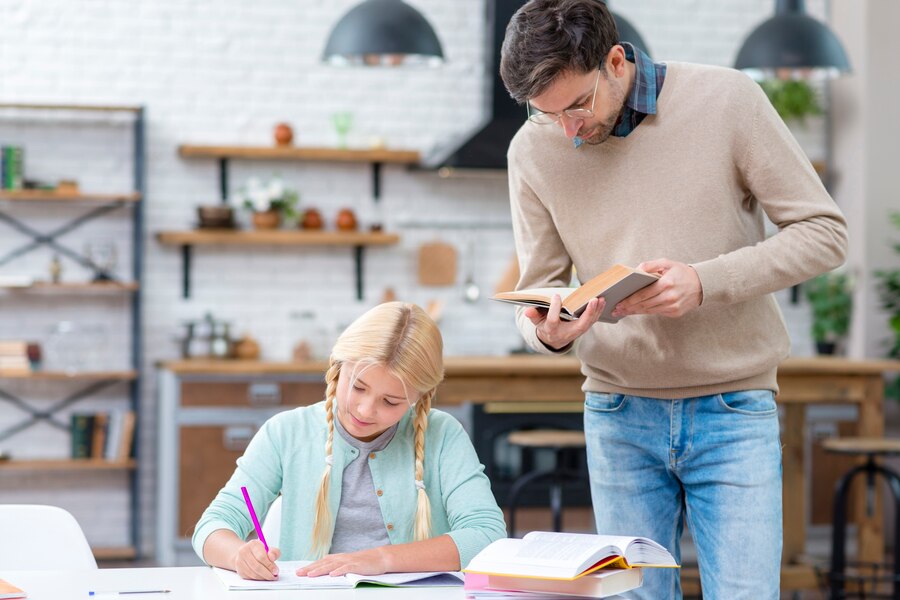Positive parenting is essential for understanding why certain discipline methods fail to yield lasting results. By delving into the core principles of human behavior, we move beyond merely gathering tools for nonpunitive discipline. This approach focuses on comprehending the deeper motivations behind every action. Positive Discipline acts as a guide, helping you cultivate happy and responsible individuals within your family.

The Adlerian Legacy: A Foundation for Equality
Alfred Adler, a visionary ahead of his time, championed the ideals of equality long before it became a societal norm. Alongside Rudolf Dreikurs, Adler laid the groundwork for understanding the essence of human behavior and the pivotal role of dignity and respect in discipline. This powerful duo’s insights are your roadmap to transforming relationships with children, encouraging them to thrive as contributing members of society.
Shifting Perspectives: From Winning Over to Winning Together
The journey of Positive Discipline is about moving from controlling tactics to winning hearts. It’s about seeing beyond misbehavior to the underlying message: a child’s deep-seated need for belonging and significance. This approach emphasizes encouragement, empowerment, and the crucial role of empathy in fostering willing cooperation.
Mistakes: The Golden Opportunities for Learning
Bid farewell to the fear of failure. Positive Discipline celebrates mistakes as stepping stones to growth. By changing our perception of errors, we foster an environment where children (and adults) learn to embrace challenges with resilience. This shift not only bolsters self-esteem but also cultivates a culture of accountability and learning.
The Essence of Self-Esteem: More Than Just Praise
In a world obsessed with external validation, Positive Discipline advocates for the true essence of self-worth. It’s about teaching children to self-evaluate and find strength in their contributions. This method ensures that the quest for approval transforms into a journey of self-discovery and genuine self-esteem.
Social Responsibility: The Path to True Belonging
At the heart of Positive Discipline lies the principle of social responsibility. It’s about instilling the value of contributing to society, moving beyond self-service to a life of meaningful engagement. Through this lens, children learn the importance of collaboration, empathy, and making a difference in the world.
Equality and Respect: The Pillars of Positive Discipline
Equality isn’t about sameness; it’s about acknowledging each individual’s inherent worth and dignity. Positive Discipline stands firm on the principle that every child deserves respect, paving the way for discipline methods that honor their uniqueness and potential.
Embracing Imperfection: The Courage to Learn
Positive Discipline invites us to celebrate imperfection as an opportunity for growth. It’s a call to shift our mindset from criticism to curiosity, from fear of failure to the joy of learning. This approach not only enriches our lives but also empowers children to navigate life’s ups and downs with confidence and grace.
Ensuring the Message of Love Shines Through
At its core, Positive Discipline is about ensuring that every child feels deeply loved and valued. It’s about breaking down barriers of hostility and misunderstanding, creating a foundation of trust and open communication. This is where true transformation begins, in an atmosphere where love is the guiding light.
Practical Applications of Positive Discipline
Embrace Positive Discipline in your daily interactions with children, transforming challenges into opportunities for growth, empathy, and mutual respect. Here are real-life scenarios and how Positive Discipline can be the game-changer.

Scenario 1: The Homework Challenge
Traditional Approach: “Do your homework now!” This command often leads to resistance and power struggles.
Positive Discipline Solution: Sit down with your child and collaboratively explore the best time for homework. “Let’s figure out a homework schedule that works for you. How can we make homework time more enjoyable and efficient?” This invites the child to take ownership and responsibility for their tasks, turning homework from a battleground into a cooperative venture.
Scenario 2: Morning Routine Madness
Traditional Approach: Rushing and nagging every morning, which usually results in tears and frustration for both parent and child.
Positive Discipline Solution: Create a morning routine chart together. Let your child choose the order of tasks (within reason) and include a fun activity for completion. “What’s a good way for us to get ready in the morning so we have time for a little story or game before leaving?” This approach fosters independence and makes mornings smoother and more enjoyable.
Scenario 3: Room Cleaning Conundrum
Traditional Approach: “Clean your room or no TV!” This often leads to resentment and minimal effort.
Positive Discipline Solution: Work together to set clear, manageable expectations for what a clean room looks like. Offer choices within these expectations. “Would you like to start with picking up toys or making your bed? What day feels best for a deeper clean so you can plan around it?” This method respects the child’s autonomy while maintaining standards.
Scenario 4: Public Tantrums
Traditional Approach: Scolding or threatening in public, which often escalates the situation.
Positive Discipline Solution: Acknowledge the child’s feelings and offer limited choices. “I see you’re really upset because we can’t buy that toy today. Would you like to help me choose dinner ingredients now, or hold the shopping list?” Recognizing emotions and providing options can diffuse the situation and teach emotional regulation.
Scenario 5: Sibling Rivalry
Traditional Approach: Playing referee and imposing solutions, which doesn’t resolve the underlying issues.
Positive Discipline Solution: Facilitate a family meeting where each child can express their feelings, and everyone works together to find mutually acceptable solutions. “Let’s talk about what’s happening and how everyone is feeling. What are some ways we can make sure everyone feels heard and respected?” This encourages empathy, communication skills, and joint problem-solving.
Positive Discipline in Action: Building Skills for Life
Positive Discipline isn’t just about avoiding punishment; it’s about teaching valuable life skills like problem-solving, communication, empathy, and self-discipline. By involving children in the process, respecting their input, and focusing on solutions together, we not only address the immediate issue but also equip them with the tools they need to navigate the complexities of life. Embrace Positive Discipline and watch as your family or classroom transforms into a nurturing environment where respect, cooperation, and mutual understanding flourish.
Positive Parenting
Positive parenting is a transformative approach that centers on nurturing and guiding children with empathy, respect, and encouragement. By focusing on positive reinforcement and fostering a supportive environment, this method helps children develop self-discipline, emotional intelligence, and a strong sense of responsibility.
The Benefits of Positive Parenting
Positive parenting offers numerous benefits, including improved parent-child relationships, better communication, and enhanced emotional well-being for both parents and children. It encourages a cooperative and harmonious family dynamic, leading to happier and more resilient children.
Key Principles of Positive Parenting
Consistency and Predictability
Consistency in rules and expectations provides children with a sense of security and helps them understand the consequences of their actions. Predictable routines and responses from parents create a stable environment that promotes trust and cooperation.
Empathy and Understanding
Empathy is at the heart of positive parenting. Understanding a child’s perspective and acknowledging their feelings fosters a deep emotional connection and builds trust. This approach helps children feel valued and understood, enhancing their emotional well-being.
Positive Reinforcement
Positive reinforcement involves recognizing and rewarding good behavior, which encourages children to repeat those actions. This technique helps children understand the benefits of positive behavior and motivates them to make better choices.
Active Listening
Active listening is crucial in positive parenting. It involves giving children undivided attention, validating their feelings, and responding thoughtfully. This practice strengthens the parent-child bond and promotes effective communication.
Setting Boundaries with Respect
Setting clear and respectful boundaries is essential for guiding children’s behavior. Positive parenting emphasizes explaining the reasons behind rules and involving children in the decision-making process, which helps them understand and respect the boundaries set.
Implementing Positive Parenting Strategies
Create a Positive Environment
A positive environment is conducive to learning and growth. Encourage open communication, provide opportunities for children to express themselves, and create a supportive atmosphere where children feel safe and loved.
Encourage Independence
Allow children to take on age-appropriate responsibilities and make choices. Encouraging independence helps children develop confidence, problem-solving skills, and a sense of autonomy.
Use Discipline as a Teaching Tool
Discipline should be used as a teaching tool rather than a form of punishment. Focus on guiding children to understand the consequences of their actions and learn from their mistakes.
Foster Emotional Intelligence
Help children develop emotional intelligence by teaching them to recognize, understand, and manage their emotions. Encourage them to express their feelings in healthy ways and provide strategies for coping with difficult emotions.
Model Positive Behavior
Children learn by observing their parents. Model positive behavior, such as empathy, respect, and effective communication, to teach children how to interact with others and handle challenges.

Positive parenting is a journey of empowerment and growth, fostering mutual respect, understanding, and a deep sense of belonging. By embracing the principles of positive parenting, you can create a nurturing environment where your children feel valued, respected, and motivated to become the best version of themselves. Welcome to the world of positive parenting, where love, learning, and growth converge.
Read Also: The Positive Discipline: Revolutionizing Education and Parenting for the Modern Era
Follow us